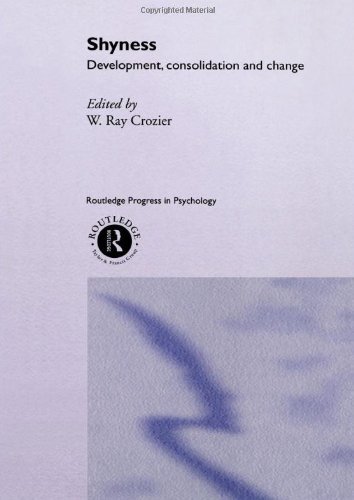
By W. Ray Crozier
Read or Download Shyness: Development, Consolidation and Change (Routledge Progress in Psychology) PDF
Best personalities books
Proposing cutting-edge examine from best investigators, this quantity examines the tactics in which humans comprehend their interpersonal stories. supplied are clean views on how contributors glean social wisdom from earlier relationships and observe it within the right here and now. additionally explored are the consequences of biases and expectations approximately major others on dating pride and private future health.
Personality Assessment (Psychology Revivals): A critical survey: Volume 14
Initially released in 1964, the purpose of this booklet used to be to examine the mental strategies interested in figuring out character, and to contemplate how the psychologist may help make extra actual checks. Professor Vernon discusses intimately the clinical prestige of psychoanalytic and different ‘depth’ theories of motivation, the worth of other different types of psychotherapeutic therapy and counselling, the impact of upbringing at the improvement of character, and the effectiveness of projective concepts.
The Neurotic Personality (International Library of Psychology)
First released in 1999. Routledge is an imprint of Taylor & Francis, an informa company.
EnneaMediCina. Le Cinque Vie dell'Anima. (Italian Edition)
In un ricco viaggio tra passato e presente, tra neuroscienza, tradition e linguaggi apparentemente differenti e inconciliabili, il libro, con un linguaggio chiaro e comprensibile, conduce il lettore, anche quello meno esperto in materia, advert integrare una visione e consapevolezza olistica della realtà.
- Facilitating Resilience and Recovery Following Trauma
- (Post)apartheid Conditions: Psychoanalysis and Social Formation (Studies in the Psychosocial)
- Psychology of Gender Through the Lens of Culture: Theories and Applications
- Dignity, Character and Self-Respect: Essays on Self-respect
Additional resources for Shyness: Development, Consolidation and Change (Routledge Progress in Psychology)
Sample text



